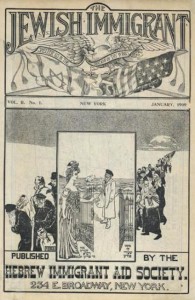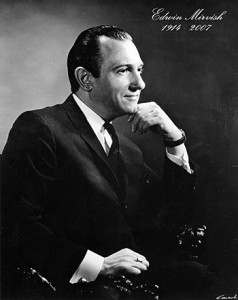
Magazines like this one owe their existence to the work of Solomon Jackson
Solomon Henry Jackson was born in late 1700s England to parents of Sephardic origin. At a young age he immigrated to the United States, settling in Pennsylvania where he got married. Noticing a great lack of Jewish texts in the New World, Jackson moved to New York and established the first Hebrew printing press in the country. With this press, he was able to publish the very first siddur/prayer book in America (a Sephardic one, catering to the majority of the Jews in the U.S. at the time, who were of Spanish and Portuguese descent), as well as the first Passover Haggada. He also started the first Jewish periodical in the U.S, a magazine called ‘The Jew’. This magazine was primarily an anti-missionary journal, published to counter the dramatic wave of missionaries that targeted poor immigrant Jews for conversion. At the time, approximately 3000 Jews were already living in the U.S., with many more arriving on its shores each day. The magazine thus helped disseminate information that prevented countless Jews from leaving behind their religion, traditions, and heritage. He was also an active leader in a nascent organization called Hevrat Hinukh Na’arim, which strove to promote Jewish education in America. In 1837, Jackson started a movement to bring more Jews to America (saving many from persecution in Europe), and settle the vast expanses of virgin land in the New World. He passed away in 1847, having built a strong foundation for Jewish life to flourish in the United States.
Shavuot Begins Tonight!
Words of the Week
You speak of what you need, but you say nothing of what you are needed for.
– Rabbi Schneur Zalman of Liadi

 Gerhard Scholem (1897-1982) was born to a secular Jewish family in Berlin. At a young age he showed a great interest in religion, but his father was staunchly anti-Orthodox and opposed it. After his mother intervened, Scholem was allowed to study Judaism with an Orthodox rabbi. In university, he studied mathematics, philosophy, and Hebrew, and met other greats like Martin Buber and Hayim Bialik. He later received an additional degree in Semitic languages. During his studies, he discovered Kabbalah and the infinite depths of Jewish mysticism. He ended up writing his doctoral thesis on the oldest known Kabbalistic text, Sefer ha-Bahir. In 1923 Scholem moved to Israel and changed his name to Gershom. He worked as a librarian and spent his time in study. In 1933 he became the first Professor of Mysticism at the Hebrew University of Jerusalem, teaching a unique view of Kabbalah from a scientific and historical perspective. He stayed at this post for over 30 years, while writing over 40 world-famous texts (in addition to over 700 articles) and winning a handful of prestigious awards, including the Israel Prize. He is credited with being a major force in opening the study of Kabbalah to the masses, both Jews and Gentiles. Despite studying Judaism through a scholarly approach, he maintained that Hebrew is a divine language, alone capable of revealing hidden truths.
Gerhard Scholem (1897-1982) was born to a secular Jewish family in Berlin. At a young age he showed a great interest in religion, but his father was staunchly anti-Orthodox and opposed it. After his mother intervened, Scholem was allowed to study Judaism with an Orthodox rabbi. In university, he studied mathematics, philosophy, and Hebrew, and met other greats like Martin Buber and Hayim Bialik. He later received an additional degree in Semitic languages. During his studies, he discovered Kabbalah and the infinite depths of Jewish mysticism. He ended up writing his doctoral thesis on the oldest known Kabbalistic text, Sefer ha-Bahir. In 1923 Scholem moved to Israel and changed his name to Gershom. He worked as a librarian and spent his time in study. In 1933 he became the first Professor of Mysticism at the Hebrew University of Jerusalem, teaching a unique view of Kabbalah from a scientific and historical perspective. He stayed at this post for over 30 years, while writing over 40 world-famous texts (in addition to over 700 articles) and winning a handful of prestigious awards, including the Israel Prize. He is credited with being a major force in opening the study of Kabbalah to the masses, both Jews and Gentiles. Despite studying Judaism through a scholarly approach, he maintained that Hebrew is a divine language, alone capable of revealing hidden truths.